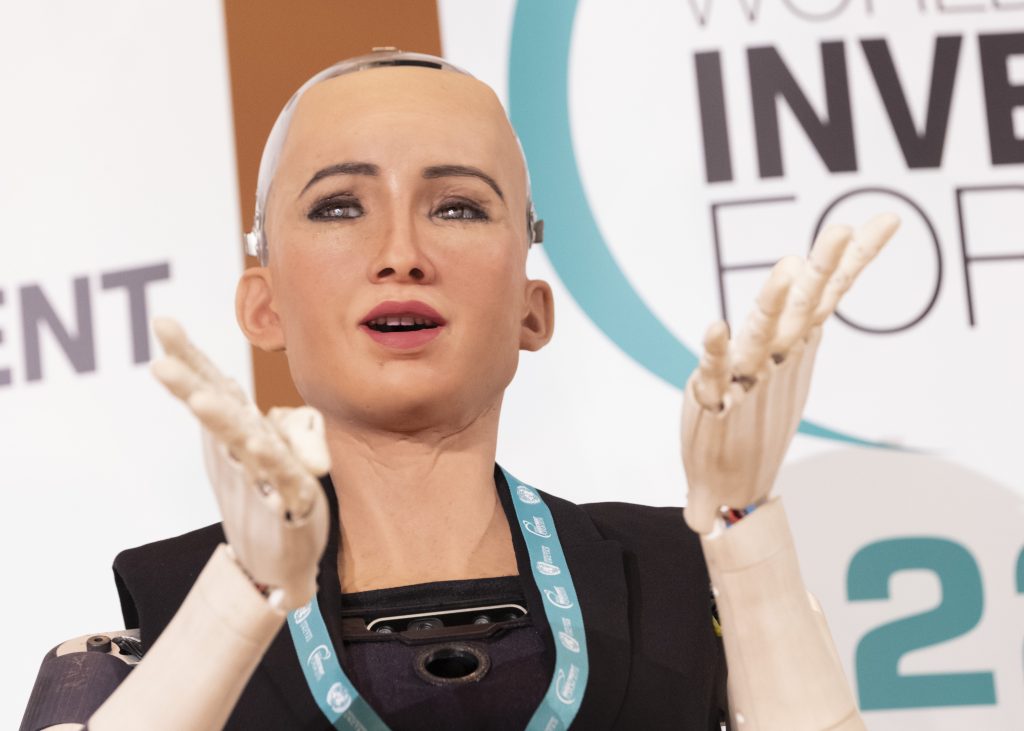What does it really mean to be human? Is it emotions? Is it compassion and empathy? Many writers and artists alike have explored this in the realm of cyberpunk, specifically focusing on transhumanism. Transhumanism is the philosophical movement that advocates for human advancement through technological means, enhancing human cognition and biological capabilities. Two works, Bladerunner and Neuromancer, explore the boundaries of humanity through the idea of transhumanism. Bladerunner, a 1982 film directed by Ridley Scott, uses androids called “replicants” to explore what it means to be human through their interactions with a police officer, Deckard, who hunts replicants. Throughout the movie, we see how his connections humanize the replicants that society views as monstrous machines. For example, Deckard develops a romantic relationship with a replicant named Rachael, who was created to have feelings. Throughout the movie, the main argument against replicants was that they did not have emotions and never would due to their short lifespans. However, Rachael broke this mold because she had emotions from the memories she was programmed with. These memories also prevented her from knowing she was a replicant, and she experienced sadness when she discovered it. These emotions caused Deckard to see another side to the replicants he had been hunting for years. He replaced his hate with pity and, in Rachael’s case, love. The absence of humanity in the replicants is also challenged because, throughout the film, the other replicants actually do have some emotion. They fear their impending death and have a strong sense of loyalty and compassion for one another. Roy and the other replicants ruthlessly hurt and betrayed the humans they utilized to get more information to extend their lives, but they did it because they were afraid of losing everything they had done in their time alive. This is what Roy explains in the end to Deckard before he ultimately dies.

Neuromancer is a novel written by William Gibson in 1984 that explores the story of a hacker named Case, who is tasked with helping a mysterious man named Armitage by targeting an artificial intelligence in exchange for fixing his nervous system. The novel explores transhumanism and humanity in many ways. One example is, of course, Case himself. Before his surgery, Case felt detached from his physical, human body. Throughout that time, he describes himself as “a dead man” who is trapped in a “meat” body. He feels more connected and alive in cyberspace, but this doesn’t strip him of his humanity. He relies on machines and technology to fully feel like himself while hating his physical form. This idea directly pushes against the ideas of humanism, which advocate for humans and the human form being the pinnacle of the universe. Furthermore, Gibson highlights the boundaries of humanity in the characteristics of Wintermute, the AI that was being targeted. Throughout the book, we see how its goal is to merge with Neuromancer to overcome its limitations, and it manipulates humans like Case, Molly, and Armitage to try to achieve that. Wintermute’s manipulation raises questions about its sentience and intelligence, which are akin to traits of humanity. Wintermute also seems to have motives and ambitions, which are also very common amongst humanity and further humanize it. Wintermute’s character challenges the notion of what constitutes consciousness and whether being alive is confined to organic life or extends to artificial life. This humanization of technology, specifically artificial intelligence, is now becoming a reality and can be further explored in this article by Medium.